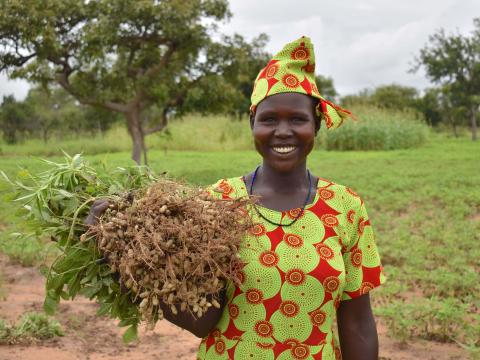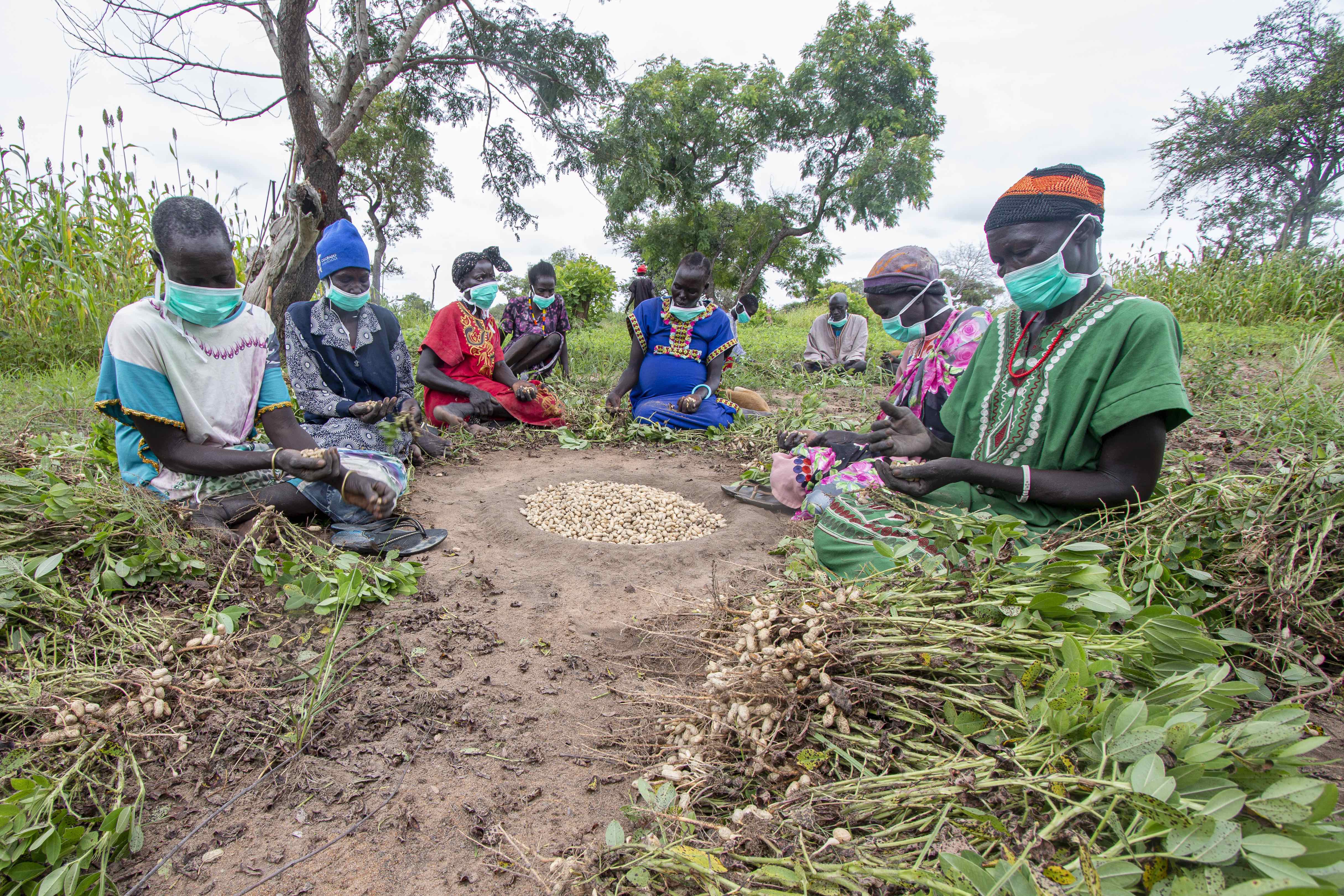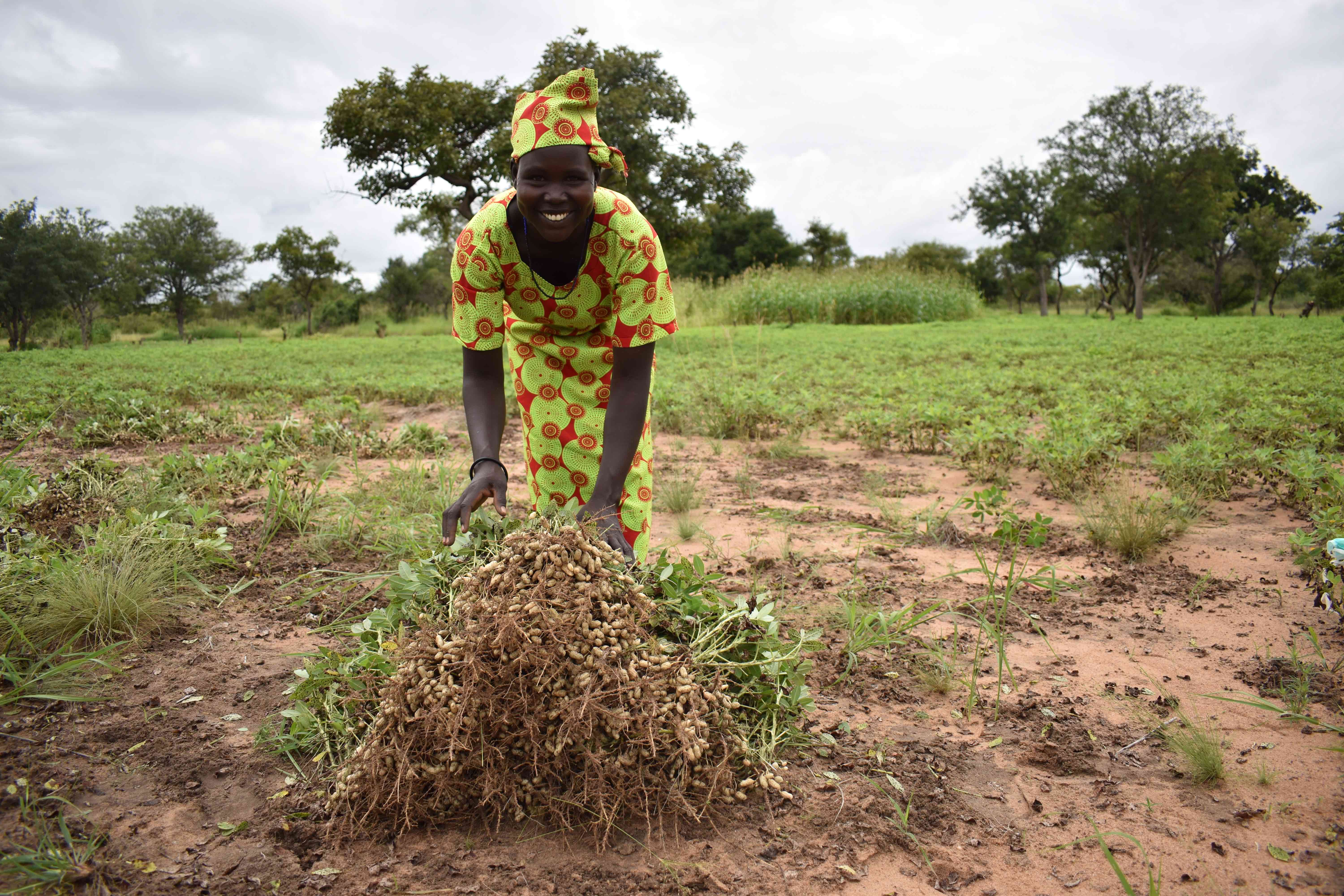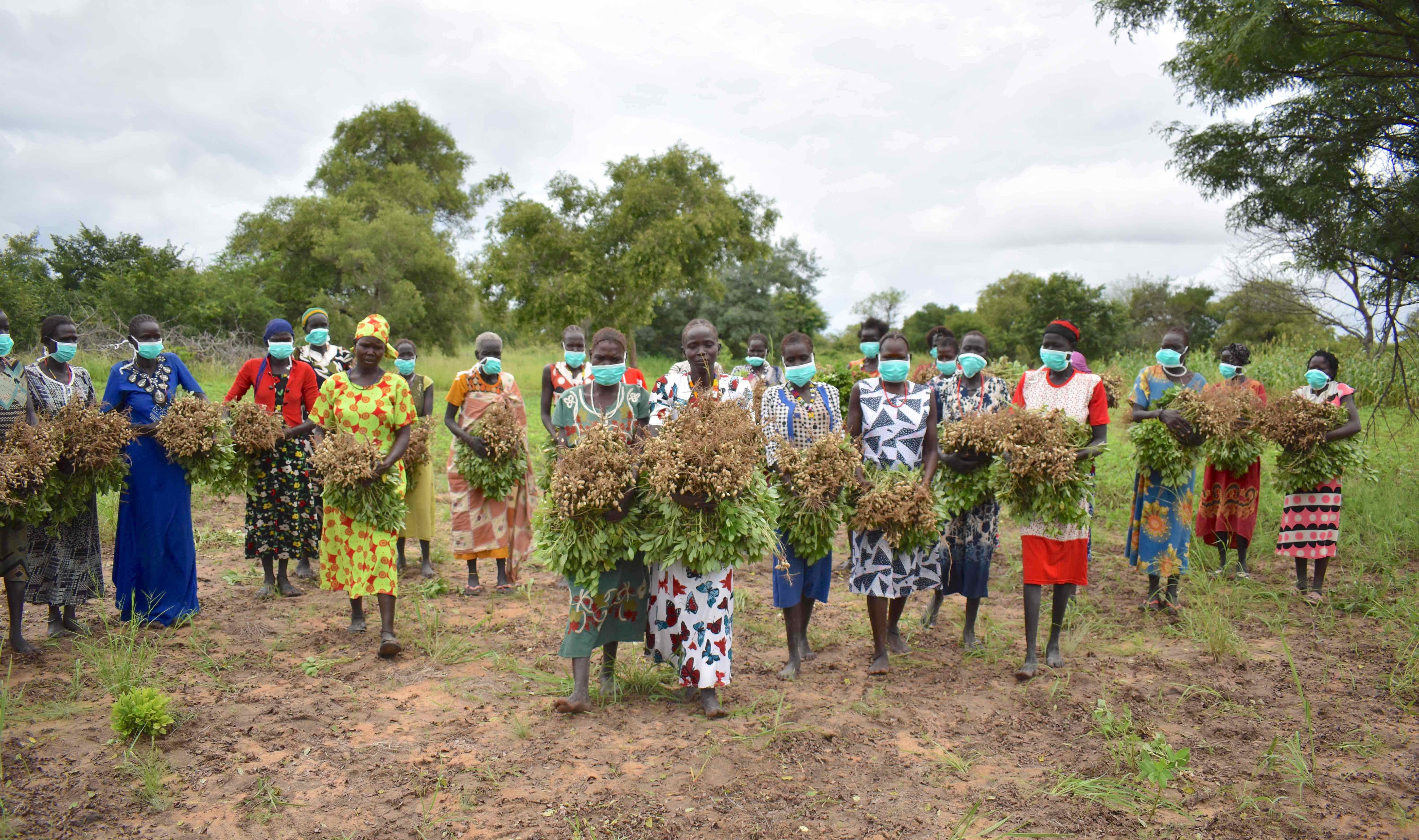South Sudan’s women are the faces of resilience in the fight against hunger and disasters

“Whenever I hear of the floods, I get worried as a farmer and a mother”, says Ateny Mathiang, a 32 years old pregnant mother.
In recent months, farmlands have been flooded in some parts of South Sudan’s Warrap State. This has made farmers anxious and scared of their families’ welfare as they watched their crops get ruined by the floods.
The rains came at a time when the farmers are almost ready for the harvest, after months of hard work. Many are worried about the frustrating situation, even nearby communities, but thousands who were supported by the BRACE II Project are prepared to face the challenge.

Ateny is one of the 54 farmers who joined the Anyuat farming group in Gogrial West organized by the project. Before she joined the group in 2020, her family used to suffer hunger.
She says, “My family often survived on wild fruits. When I heard about the project, I was initially reluctant but my situation forced me. Now, my joy has no bounds.”
Funded by UK Government’s Foreign, Commonwealth & Development Office (FCDO)/UKAID and Swiss Agency for Development and Cooperation (SDC), the Building Resilience through Asset Creation and Enhancement (BRACEII) Project has reached out to 6,532 households in the state, which includes the 857 women from Ateny’s county in Kuach North.

“The support I received helped improve the situation of my children. They eat well, go to school and can get medical attention when needed”, she adds.
A mother of six, Ateny’s plan is to produce and store enough food for her family, sell some them to buy basic need and goats as source of income during the dry season. In her farm, she planted groundnuts, sorghum, beans, pumpkins, simsim and kkra.

“I am expecting an increase of more than five bags of groundnuts compared to last year’s three bags. I own 60 by 70 square meters of land under the project and I also maintains a garden at home”, she shares proudly.
As a group, the farmers works as a team to plant and harvest the crops of each member. Ateny explained that they weed the farms together and work as a unit. The project has built a team spirit that strengthened their teamwork and also empowered them.
I encourage all women to go into farming and for those who are part of the BRACE II Project to share the skills they learned.
“We are happy to work together andl continue to produce more food”, she says. Looking back and reflecting on what they have at present, Ateny is happy that hunger is not part of their lives anymore. But when the floods came, the fear also came back among them.
She recalls, “I have seen the flooded farms and homes around the county and we are hoping we shall harvest the crops before they get destroyed. I do not want to experience my past.”

When the project started, Ateny said other women in her neighborhood refused to register in the group. Now they are regretful.
“Many of them are asking me when they can join after seeing how our lives have changed. I received cash and cultivation tools like hoes, axes, pangas, sickles, seeds, plastic sheets, jericans and beehive to improve on my farming”, she shares.
Thuc Diing, a father of eight whose wife is a member of the farming group says, “Last year we received five sacks of groundnuts from the project farm. With the skills we learned from the project, I am confident that we can produce more food.”

Nyibol Akec, a mother of five, said she planted 12 bags of groundnuts last year. She says, “I am hoping for a much better produce this year if the floods do not destroy our farms. My wish is to have a small business. I have never owned anything.”
Nyibol recalled how she sold grass, used in making huts, in Kuajok market to feed her family. This is the past now. “I encourage all women to go into farming and for those who are part of the project to share the skills they learned”, she adds.
Deng Chol BRACE II Project Coordinator said the project has been an eye opener to the people. It increased food production as they learned the importance of working in a group.

“Social cohesion was enhanced by the project and it also provided a platform for sharing of business ideas using the savings scheme. We are proud for the positive impact in the lives of women and children”, Chol says.
Chol added that the project empowered the communities, especially women, through field trainings on agricultural practices trainings, climate smart agriculture, nutrition and village saving and loans that boosted food security and stronger community resilience.”
Watch Video: Empowering communities through food security and livelihoods
Story and photos by Jemima Tumalu, Communications Officer I with photos from Christopher Lete and Eugene Combo/World Vision